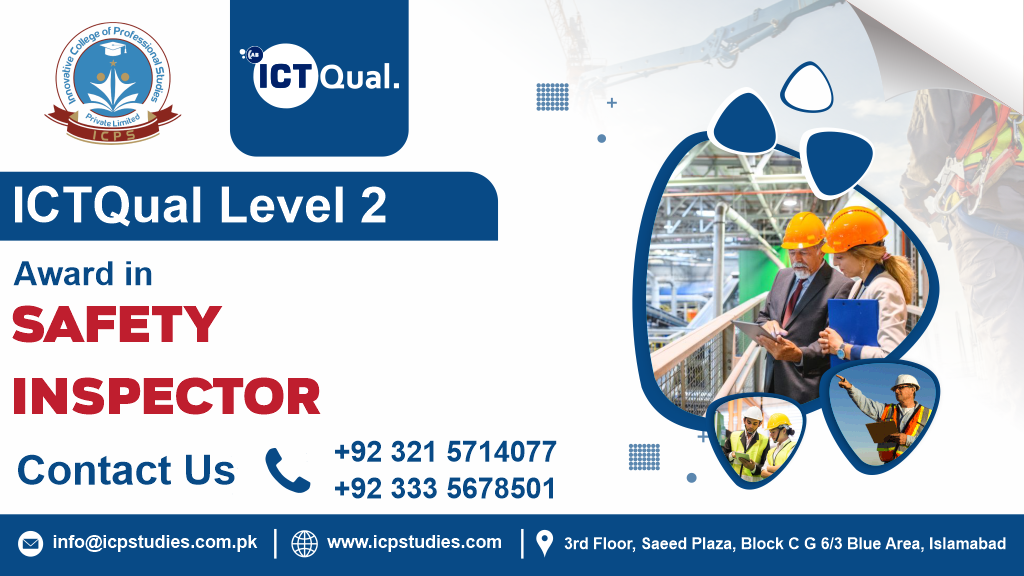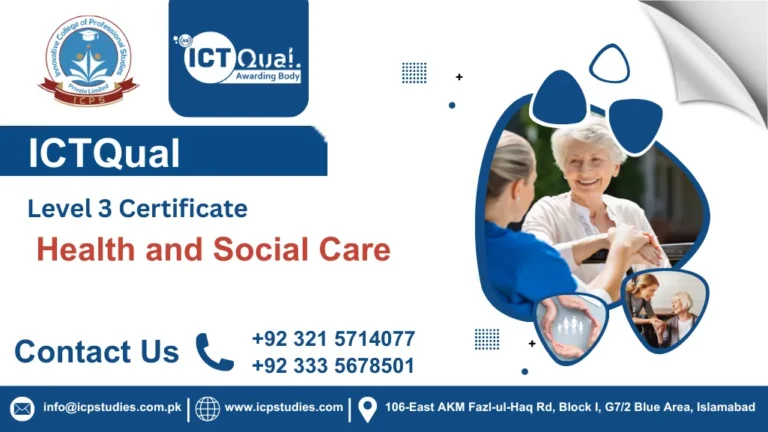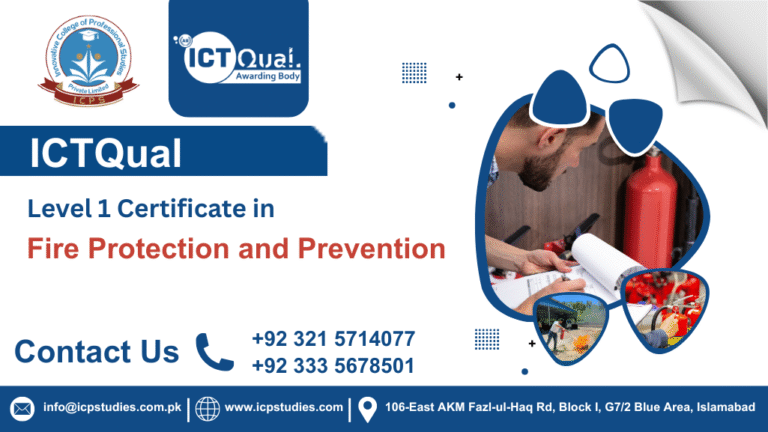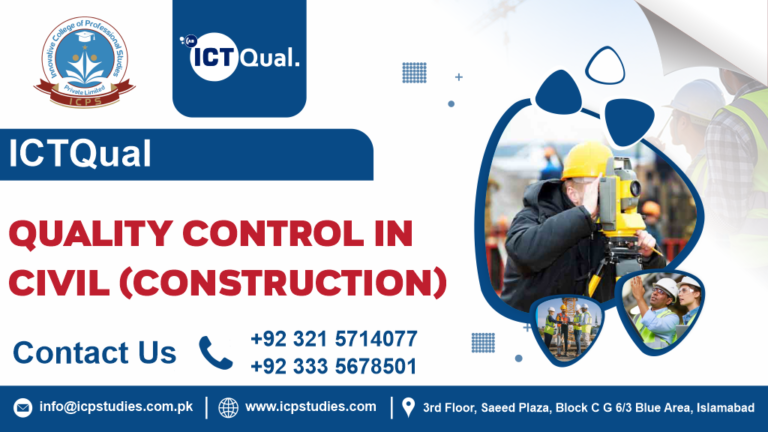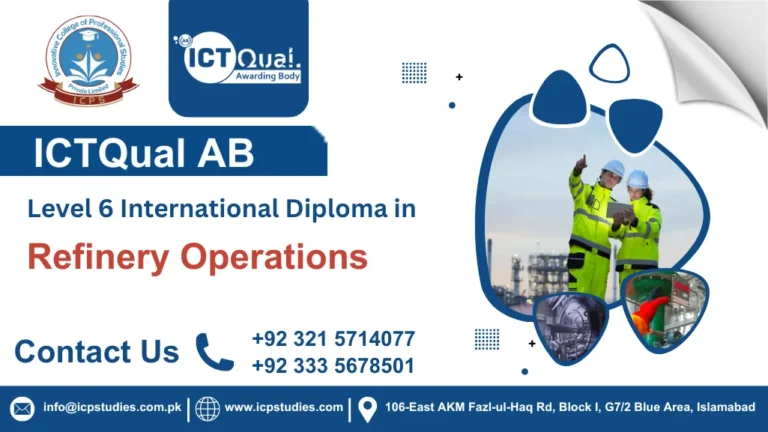In today’s dynamic workplaces, ensuring safety isn’t just a legal requirement—it’s a moral imperative. Enter the Level 2 Award in Safety Inspector, a pivotal certification designed to equip professionals with the expertise to uphold and enforce safety protocols across diverse industries.
The Level 2 Award in Safety Inspector is more than a mere certification; it’s a symbol of proficiency in identifying, assessing, and mitigating workplace hazards. Accredited by reputable bodies, this qualification validates that holders have undergone rigorous training and assessments focused on workplace safety regulations and best practices.
The Level 2 Award in Safety Inspector represents a commitment to excellence in workplace safety. Whether you’re seeking to enhance your career in health and safety management or aiming to foster a safer work environment, this qualification equips you with the knowledge and skills to make a meaningful impact. Embrace the opportunity to elevate safety standards—because every workplace deserves to be safe for everyone.
All About ICTQual Level 2 Award in Safety Inspector
Course Overview
The Level 2 Award in Safety Inspector is a specialized certification program designed to equip individuals with the knowledge, skills, and competence to effectively assess and manage workplace safety hazards. This qualification is essential for professionals who play a crucial role in maintaining and promoting safety standards within various industries.
The Level 2 Award in Safety Inspector is typically accredited by recognized professional bodies or regulatory authorities, ensuring that participants meet specified standards of competence and professionalism in workplace safety management. It is suitable for individuals in roles such as safety officers, inspectors, supervisors, managers, and anyone responsible for health and safety practices within their organization.
Study Units
- Fundamentals of Safety Inspection
- Legislation and Regulatory Compliance
- Hazard Identification and Risk Assessment
- Safety Procedures and Protocols
- Personal Protective Equipment (PPE) Usage
- Emergency Response and Incident Management
- Documentation and Reporting
- Practical Skills Training
Admission Criteria
The Level 2 Award in Safety Inspector is designed for individuals who are passionate about ensuring and maintaining safe working environments across various industries. This course is particularly suited for:
- Health and Safety Professionals: Individuals who are responsible for implementing, managing, or auditing health and safety policies and practices within organizations.
- Safety Inspectors and Auditors: Professionals tasked with conducting regular safety inspections, audits, and assessments to identify hazards, assess risks, and ensure compliance with safety regulations.
- Supervisors and Managers: Those in leadership roles overseeing operational safety, including supervisors in manufacturing, construction, and industrial settings.
- Facility and Operations Managers: Individuals responsible for maintaining and improving safety standards within facilities, including factories, warehouses, and office buildings.
- Human Resources Personnel: HR professionals involved in developing and enforcing workplace health and safety policies, training programs, and compliance initiatives.
- Environmental Health Officers: Public health officials or officers responsible for enforcing health and safety regulations in public and private sectors.
- Construction and Engineering Professionals: Engineers, project managers, and construction supervisors who must ensure safety protocols are adhered to on construction sites and in engineering projects.
- Risk Managers and Consultants: Professionals specializing in risk management, safety consulting, or occupational health and safety (OHS) advisory services.
- Anyone Pursuing a Career in Health and Safety: Individuals seeking to enter or advance in careers focused on occupational health and safety, regulatory compliance, or workplace risk management.
Ideal Candidate
Entry requirements for the Level 2 Award in Safety Inspector course typically include:
- Minimum Age: Participants are generally required to be at least 18 years old due to the responsibilities involved in safety inspection and management.
- Educational Background: While specific academic qualifications may not be mandatory, a basic level of education (e.g., completion of secondary school) is usually preferred to ensure comprehension of course materials and safety principles.
- Health and Fitness: Due to the physical demands of safety inspections and emergency response situations, participants may need to meet specific health and fitness criteria. This ensures they can safely perform tasks and respond effectively during critical incidents.
- Language Proficiency: Participants may need to demonstrate proficiency in the language of instruction to understand course content, safety procedures, and regulatory requirements effectively.
- Previous Experience: While not always required, some courses may prefer participants to have practical experience in roles related to health and safety, industrial operations, or regulatory compliance. Experience in a relevant field enhances understanding and application of safety principles.
- Awareness of Health and Safety: A basic awareness of health and safety practices, including hazard identification, risk assessment, and safety protocols, is beneficial for participants undertaking this course. It ensures they have a foundational understanding of workplace safety principles.
- Commitment to Safety: Participants should demonstrate a commitment to promoting and maintaining workplace safety standards. This includes a willingness to learn and apply safety regulations, protocols, and best practices in their professional roles.
Learning Outcome
Fundamentals of Safety Inspection
- Understand the principles and objectives of safety inspections within various workplace settings.
- Learn how to plan and conduct effective safety inspections to identify potential hazards and unsafe practices.
- Gain skills in documenting findings accurately and communicating inspection results to relevant stakeholders.
2. Legislation and Regulatory Compliance
- Identify and explain relevant health and safety legislation, regulations, and codes of practice applicable to specific industries and workplaces.
- Understand the importance of compliance with legal requirements and the consequences of non-compliance.
- Interpret and apply legislative requirements to ensure workplace safety and regulatory adherence.
3. Hazard Identification and Risk Assessment
- Develop proficiency in recognizing and assessing workplace hazards, including physical, chemical, biological, ergonomic, and psychosocial hazards.
- Learn systematic methods for conducting risk assessments to evaluate the likelihood and severity of identified hazards.
- Implement control measures to mitigate risks effectively and prioritize actions based on risk assessment outcomes.
4. Safety Procedures and Protocols
- Understand the importance of implementing and maintaining safety procedures and protocols to prevent accidents and injuries.
- Learn specific procedures for safe work practices, including equipment operation, confined space entry, working at heights, and handling hazardous substances.
- Demonstrate knowledge of emergency procedures, evacuation plans, and response protocols to ensure preparedness for unforeseen incidents.
5. Personal Protective Equipment (PPE) Usage
- Identify different types of personal protective equipment (PPE) suitable for various workplace hazards and tasks.
- Learn how to select, use, and maintain PPE effectively to provide adequate protection for individuals.
- Understand the limitations of PPE and when additional control measures may be necessary to ensure safety.
6. Emergency Response and Incident Management
- Develop skills in responding to workplace emergencies, including fires, spills, medical emergencies, and other critical incidents.
- Learn incident management strategies, including prioritizing safety, assessing the situation, and coordinating response efforts.
- Practice effective communication and teamwork during emergency situations to minimize harm and facilitate recovery.
7. Documentation and Reporting
- Understand the importance of accurate documentation and reporting in maintaining safety records and compliance.
- Learn how to document safety inspections, risk assessments, incidents, near misses, and corrective actions taken.
- Develop skills in preparing clear and concise reports for management, regulatory authorities, and other stakeholders.
8. Practical Skills Training
- Apply theoretical knowledge gained from coursework to practical scenarios and simulations.
- Demonstrate competence in conducting safety inspections, risk assessments, emergency response drills, and PPE usage.
- Receive hands-on training to enhance skills in implementing safety procedures and protocols effectively.
FAQs about ICTQual Level 2 Award in Safety Inspector

